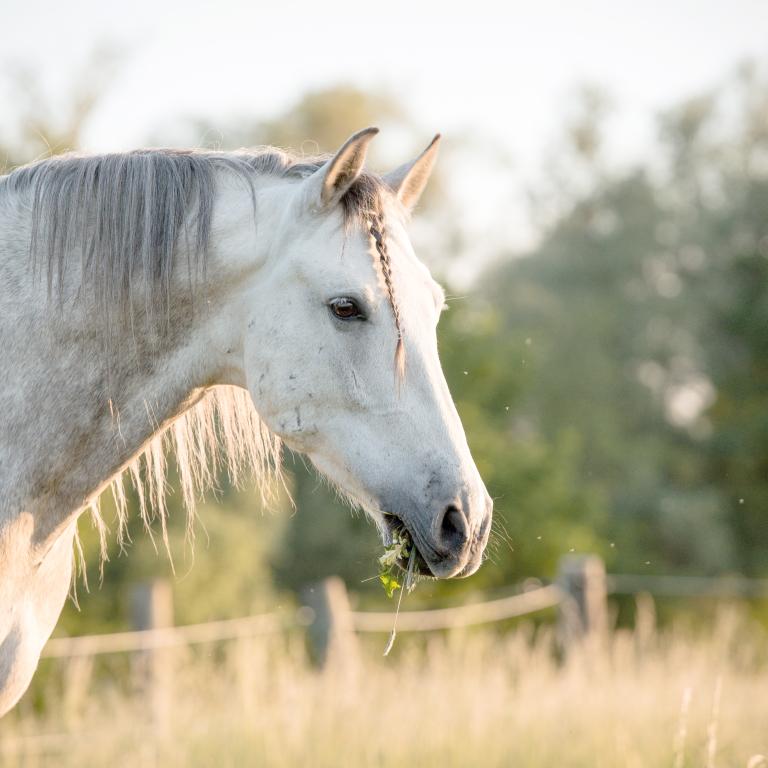What is Muscle Integrity Myopathy (formerly known as 'PSSM2')?
Muscle Integrity Myopathy is form of Exertional Myopathy, in which the structure and/or function of the muscle is disrupted. It is caused by hereditary predisposition and various environmental factors (age, feeding, husbandry). Typical symptoms can include unexplained lameness, muscle stiffness, difficulties with gait changes/coordination, reluctance to move, muscle atrophy and/or difficulty building muscle. Almost any breed of horse can be affected.
Six genetic variants that can disrupt muscle structure and/or function have been identified in horses. These predispose a horse to developing symptoms of exertional myopathy.
Possible symptoms of Muscle Integrity Myopathy (formerly known as 'PSSM2')
The symptoms of Muscle Integrity Myopathy are varied and can appear very differently depending on the horse. The most common symptoms include:
- Lameness
- Lack of movement/intolerance of training
- Behavioural changes
- Muscle loss
Our Genetic Test
The following genetic variants are included, which pose a high risk for the development of muscle integrity myopathy symptoms in horses:
- P2: Myotilinopathy
- P3: Filaminopathy
- P4: Myozenin-3-Myopathy
- Px: CACNA2D3-Myopathy
- P8: PYROXD1- Myopathy
- K1: COL6A3-Myopathy
Download the flyer:
It is generally not possible to cure genetic disorders; however, with optimized management the currently known genetic variants can often be compensated for with specialized feeding and exercise protocols, often allowing the horses to enjoy a normal life with minimal/manageable symptoms.


